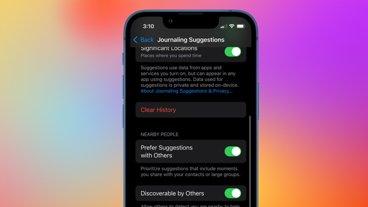DoJ accuses Apple of prolonging price fixing suit for financial gain
The DoJ document, first reported by paidContent, is in response to an Apple memo filed a little over one week ago which opposed the government's request for a summary judgment regarding a proposed settlement.
In Wednesday's memo, the DoJ rebuked Apple's opposing remarks and once again asked presiding judge Denise Cote to approve the ruling in lieu of a hearing, claiming “in reality, what troubles Apple is that the decree returns pricing discretion not just to Apple, but also to its retail competitors.â€
From the memo:
In reality, what troubles Apple is that the decree returns pricing discretion not just to Apple, but also to its retail competitors — competitors which Apple fears may choose to exercise that restored authority in order to lower e-book prices. In that event, Apple’s e-book customers might find less expensive alternatives. Apple’s desire to avoid price competition for as long as possible is the unstated reason why it seeks to undo or forestall the settlements.
[…]
In short, Apple’s own interests motivate its objections to the proposed decree, interests that are not in any way linked to the public interest inquiry mandated by the Tunney Act.
The governement argues that delaying a final ruling on the matter would "deprive Settling Defendants, the United States, and consumers of the immediate benefits of the settlements for no reason other than to preserve the Apple Agency Agreements." The memo goes on to claim those specific deals with publishing houses "almost literally overnight" caused a substantial increase in e-book pricing.
Apple and its partner defendants have countered such claims, saying the DoJ has no evidence to back their claims besides "secret" sales data not made available to corporations. The Cupertino company went as far as to call the summary judgment request unlawful and fundamentally unfair.
Getting into the details of the most recent memo, the DoJ attempts to table arguments that the e-book trade is unlike any other industry by noting there have been numerous pleas for special treatment under antitrust laws in the past. "Railroads, publishers, lawyers, construction engineers, health care providers, and oil companies are just some of the voices that have raised cries against 'ruinous competition' over the decades," the government writes.
The DoJ also takes the publishers' opposing arguments into consideration. In attempting to dismantle publishing house Penguin's claims, the government presented charts comparing pricing between new release e-books with older titles, noting a significant increase in both. The stats came from content sold through Amazon.
Penguin was one of the first to question the DoJ's market research and requested the accompanying documents be handed over since it seems to be the basis of the government's argument. The DoJ declined, saying “There is simply no basis for Penguin’s assertion that the United States must produce internal economic analyses to support its settlement.â€
Macmillan also asked to see the "secret" research, but more importantly requested the DoJ prove the proposed settlement wouldn't result in an Amazon monopoly. The publisher was unsuccessful in both requests, with the government brushing off the Amazon monopoly argument citing existing competition from "established companies such as B&N, Google, Apple, and Sony.â€
Judge Cote has not yet ruled on the matter.
 Mikey Campbell
Mikey Campbell










 Chip Loder
Chip Loder
 Andrew Orr
Andrew Orr
 Christine McKee
Christine McKee
 Marko Zivkovic
Marko Zivkovic

 Mike Wuerthele
Mike Wuerthele
 William Gallagher
William Gallagher








